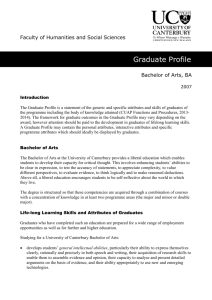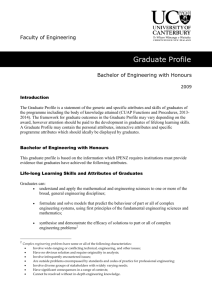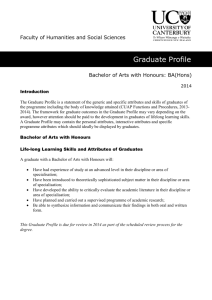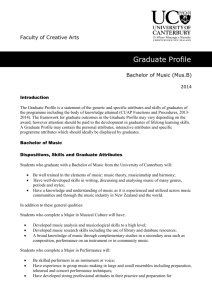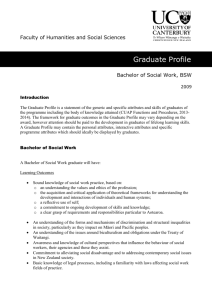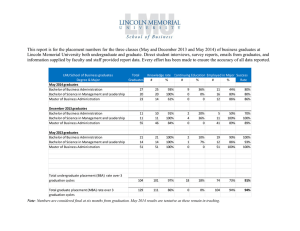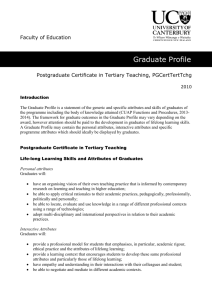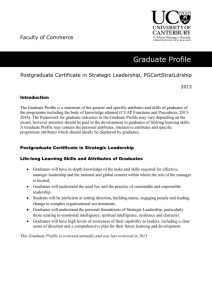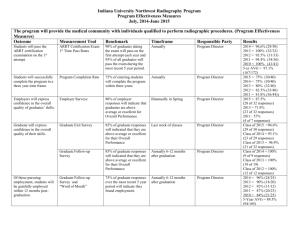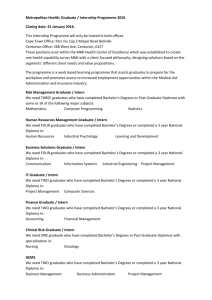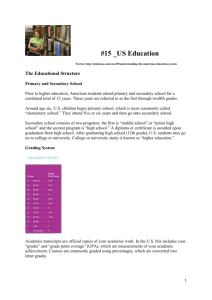Bachelor of Fine Arts - University of Canterbury
advertisement
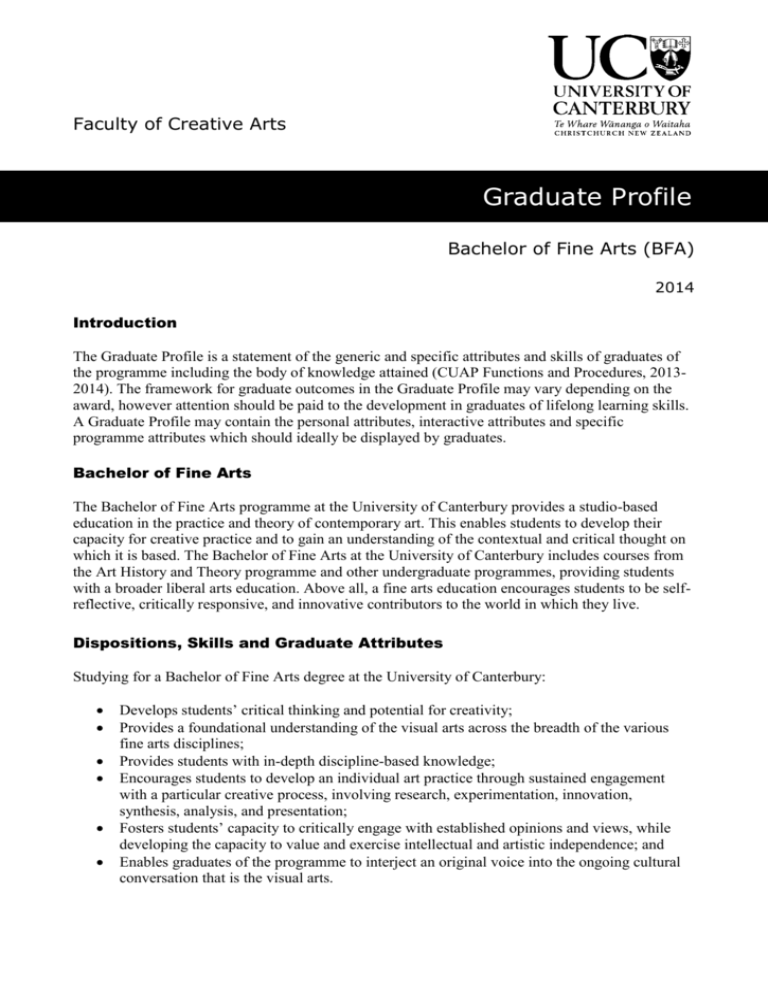
Faculty of Creative Arts Graduate Profile Bachelor of Fine Arts (BFA) 2014 Introduction The Graduate Profile is a statement of the generic and specific attributes and skills of graduates of the programme including the body of knowledge attained (CUAP Functions and Procedures, 20132014). The framework for graduate outcomes in the Graduate Profile may vary depending on the award, however attention should be paid to the development in graduates of lifelong learning skills. A Graduate Profile may contain the personal attributes, interactive attributes and specific programme attributes which should ideally be displayed by graduates. Bachelor of Fine Arts The Bachelor of Fine Arts programme at the University of Canterbury provides a studio-based education in the practice and theory of contemporary art. This enables students to develop their capacity for creative practice and to gain an understanding of the contextual and critical thought on which it is based. The Bachelor of Fine Arts at the University of Canterbury includes courses from the Art History and Theory programme and other undergraduate programmes, providing students with a broader liberal arts education. Above all, a fine arts education encourages students to be selfreflective, critically responsive, and innovative contributors to the world in which they live. Dispositions, Skills and Graduate Attributes Studying for a Bachelor of Fine Arts degree at the University of Canterbury: Develops students’ critical thinking and potential for creativity; Provides a foundational understanding of the visual arts across the breadth of the various fine arts disciplines; Provides students with in-depth discipline-based knowledge; Encourages students to develop an individual art practice through sustained engagement with a particular creative process, involving research, experimentation, innovation, synthesis, analysis, and presentation; Fosters students’ capacity to critically engage with established opinions and views, while developing the capacity to value and exercise intellectual and artistic independence; and Enables graduates of the programme to interject an original voice into the ongoing cultural conversation that is the visual arts. Graduates will have extended their ability for creative expression and thought through a core fine arts discipline and within their chosen discipline they will: Have engaged in research and experimentation; Have engaged in the exploration and incubation of a developing body of work’s research material; Have developed a nascent practitioner’s potential experimental strategies through: o A growing understanding and synthesis of a project’s organizing ideas; o Knowledge of and consideration for a creative undertaking’s cultural context and that context’s shaping influence; o The development of appropriate processes and constituting procedures with an expanding cognizance of a work’s potential audience; Have had experience in analysing outcomes with a view to clarity of purpose, and from that clarity of purpose developing a relevant critical thesis as an accompanying textual exegesis of the work itself; Have had experience in innovation by inventing new combinations, novel variations, and fresh themes or strategies arising from practice in the chosen field of fine arts endeavour. This Graduate Profile is reviewed annually and was last reviewed in 2014. 2
